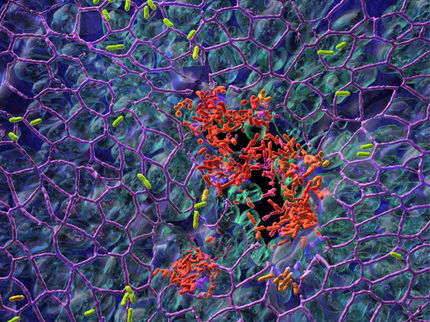Antimicrobial resistance: EMA provides advice on use of colistin and tigecycline in animals
Advertisement
In a response published today, the European Medicines Agency (EMA) provided advice to the European Commission on the impact on public health and on animal health of the use of the antibiotics colistin and tigecycline in animals. This is the first response to a series of four questions raised by the European Commission in a request to the Agency related to the use of antimicrobials in animals and the potential impact of this use on human health and animal health.
The emergence and steady increase in the occurrence of bacteria that are resistant to multiple antibiotics has become a global public health threat due to the lack of therapeutic options to treat certain infections in man. Colistin and tigecycline are amongst the antibiotics that have become life-saving treatments for human patients suffering from different kinds of infections caused by multidrug-resistant bacteria.
Continue the responsible use of colistin to treat diseases in animals
Colistin has been used in veterinary medicine for over 50 years. There is no available evidence on the transfer of resistance to colistin from animals to man; however, the Agency’s advice acknowledges there is limited information on the subject and more research and surveillance should be done.
The advice recommends maintaining the use of colistin in veterinary medicine but restricting its use to the treatment of infected animals and those in contact with them, and to remove all indications for preventive (or prophylactic) use. It mentions that the European Commission should determine the best way to amend the labelling and product literature for colistin-containing veterinary medicines to reflect this more restricted pattern of use which is aligned with the principles of responsible use. The advice also recommends strengthening the systems for surveillance for resistance to colistin in order to increase the likelihood of early detection of any rise. The benefit-risk balance for colistin would need to be re-evaluated should a substantial increase be detected in rates of resistance.
No need identified for authorisation of tigecycline for use in animals
Tigecycline, an antibiotic of the glycylcycline class, is not currently approved for use in animals. The extent of off-label use of this antibiotic in veterinary medicine cannot currently be quantified, although there is some anecdotal evidence of the use in dogs and cats of tigecycline products authorised for human use.
The Agency advised that currently no need is foreseen for the authorisation of tigecycline for use in animals. If the need for an approval of tigecycline as a veterinary medicine should ever arise in the future, authorisations should only be considered on the basis of a positive benefit-risk assessment which would take into account the risk of transfer of resistance to humans.
However, based on the current situation, it is unlikely that a marketing authorisation could be granted in light of the need for this antibiotic in human medicine.















































